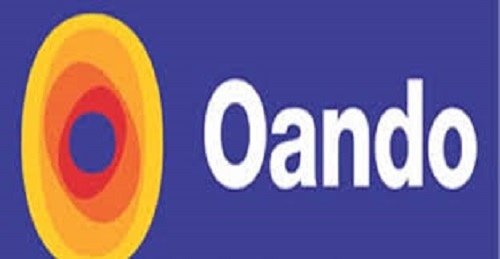-By Victoria Opeyemi
Recently, Oando PLC and Business Day, a media outfit in Nigeria jointly hosted a webinar which was anchored by Eleni Giokos, a correspondent for CNN. The topic for the webinar was on “The Inequality Virus: Revolution Based Change to Achieve Inclusive Growth.”
Speaking to the audience, Giokos said Covid-19 started like health pandemic and then metamorphosed into an economic pandemic. The spread of the corona virus initiated a loop perpetuating a pandemic of a different kind that has been plaguing the world for many centuries and that is economic inequality. The long-term consequences of this crises are evident in latest numbers pointing to a devastating worst-case scenario. According to the world bank – 100 million people could be plunged into extreme poverty. The best-case scenario they are looking at 71 million people plunged into extreme poverty.
Emphasizing on gender inequality, Dr Jason Hickel, Economic Anthropologist and a Senior Lecturer at Goldsmith University, London, said, there is narrative and convergence of income between the global north and global south, neo colonial divide is closing and the opposite is true according to data on incomes. The gap between the north and south has actually widened significantly since the end of the colonization, the real per capital income gap is about quadruple since 1960 according to world bank figures. One of the big culprits of this is of course the structure doesn’t program the way it empowers across the global south during the 1980’s and 1990s has particularly devastating effects on sub Saharan Africa. In sub Saharan Africa about 20 years of decline in real per capital GDP, it is just reaching levels that back in the 1970s there had been 40 years of stagnation which is a real problem. What is happening with the COVID crisis is exacerbating all of this, American billionaires alone have added $600 billion to their wealth over the past few months, while the poorest 50% of humanity – all in the global south, have been losing $5 billon per day as a consequence of this crisis. This is widening inequalities rather than narrowing them.
Hickel added that capitalism is the system that intrinsically produces inequality. It produces inequality because capital has more bargaining power than labour right, so as long as capital has more bargaining power than labour. It is able to appropriate majority of proceeds of capital block.
“What we are seeing right now is an inherent tendency of capitalism which will be exposed and exacerbated beyond what anyone ever expected would be the case. So, the response to this has to be to rebalance the relationship between capital and labour make sure that we have strong laws to ensure that labour is able to appropriate its fair share of what the global economy is producing.”
Showing her concern on inequality, Hafsat Abiola- Costello, President and CEO of Women in Africa Initiative was of the view that the reason for inequality, not just in Nigeria but across the continent, of the 19 most unequal countries in the world, 10 are in the continent of Africa. The challenge is that by 2050, 90% of the world’s poorest people in the world will be on the continent of Africa and that’s a projection.
In her words, “we can change that dynamic, we can change that narrative, we can change that reality, but I do believe that we must first begin by changing our focus.”
She said the focus of her initiative is on the bright lights, big stars, big companies and how they could be brought together to achieve common objectives. But unfortunately, as the focus is on the bright lights and big stars, African countries get poorer and remain unequal. There’s a dynamic in that focus that is not good for countries in Africa and its societies. it’s not good for society.
Thus, “if we shift the focus, Africa can get it right, not just that Africa can get it right, Africa must get it right. Its 400 years of suffering, our generation can set the tone that ensures that the 22nd century will be ours.”
In Nigeria for example, women entrepreneurs in the SME sector are only 20% of that sector, the bulk of them are in the micro sector. It means that with what they earn, they don’t have much savings and profits.
Abiola- Costello noted that women have a double-edged problem because many of them are in the informal economy, and the informal economy from any of the countries of Africa are huge, in Nigeria its about 80% in Ghana about 90% it’s ridiculous, it’s a really huge sector of the economy and it means that they are not registered.
The Country Director of Nigeria for Global Citizen, Maimuna Maibe, submitted that Sustainable Development Goals (SDGs) is important.
In achieving SDGs, localising languages and making sure that for example in a country like Nigeria, every average Nigerian understands what those goals are and how that affects their daily lives. Localising the implementation in terms of communicating it to rural communities as it affects their daily activities, linking it to climate change for example, there’s a lot that is happening that people are not aware.
Maibe asserted that “seasons have changed, we don’t have rainy season or the harmattan anymore and that’s affecting agriculture. If you are looking at the North East, that now results in some serious displacement. We currently have about 2 million Nigerians that are displaced in the North East, a lot of that, I can attribute to climate change, and not taking certain things very seriously.”
“So, if we have the infrastructure and the investment in such sectors and if people are educated on what the impact of their activities are, then we would be able to have some sort of holistic view and would be able to realize the 17 global goals as well in the long run.”


Comment here